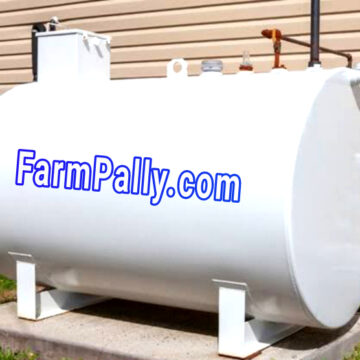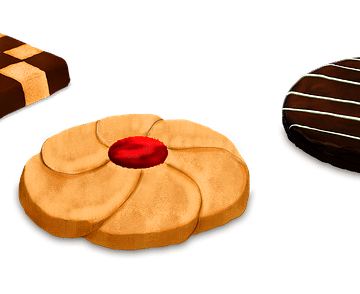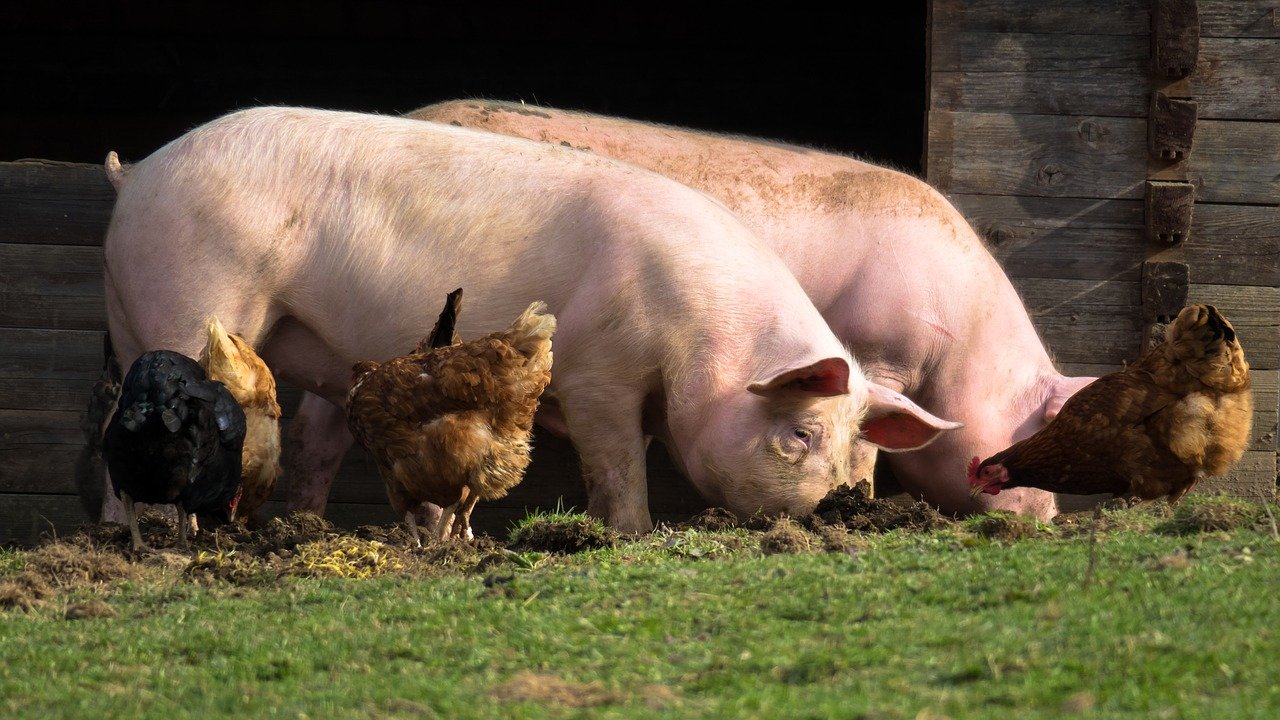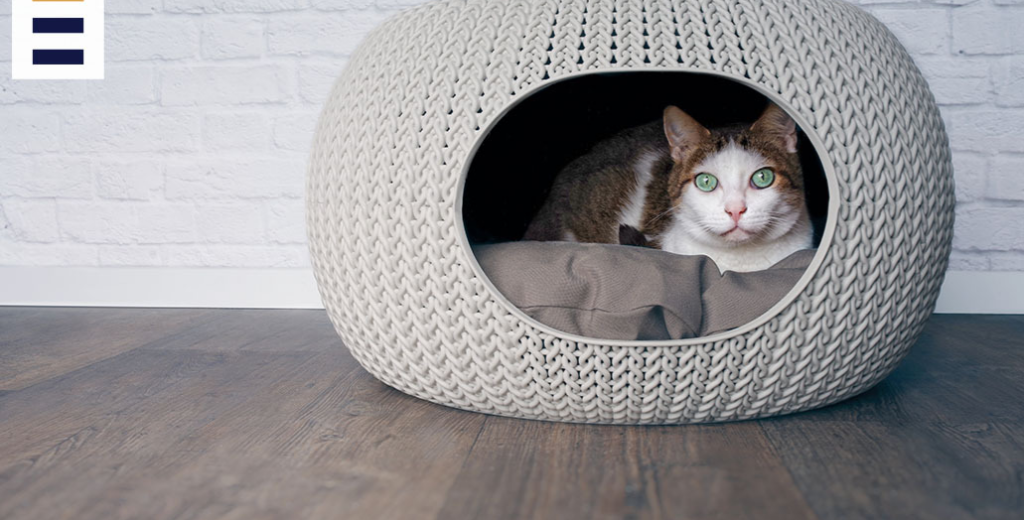Cats are fond of sitting curled in a cool space, and they sleep for at least 10 hours daily.
Cat pets are not as active as dog pets, therefore, it’s important to provide a comfortable and fluffy bed for your feline friend.
What are Cat Houses?
Cat house or bed is a common name for anything your cat sleeps on day and night to keep him comfortable and warm and cool both in the winter and summer respectively.
There are many types of cat houses or beds in terms of shapes, design, color, and materials used.
Some of them are Traditional cat beds, Condo beds to play ‘hide and seek’, Cat cubes, Window beds to keep your cat in between indoors and outdoors, Pod-shaped beds for more privacy, Cat tent, Donut beds, Hanging beds, Cardboard beds, Whimsical cat beds, etc.
The 3 common types of classical cat beds are flat fluffy beds, caves, and basket beds, while a basket bed is usually used as a cat carrier.
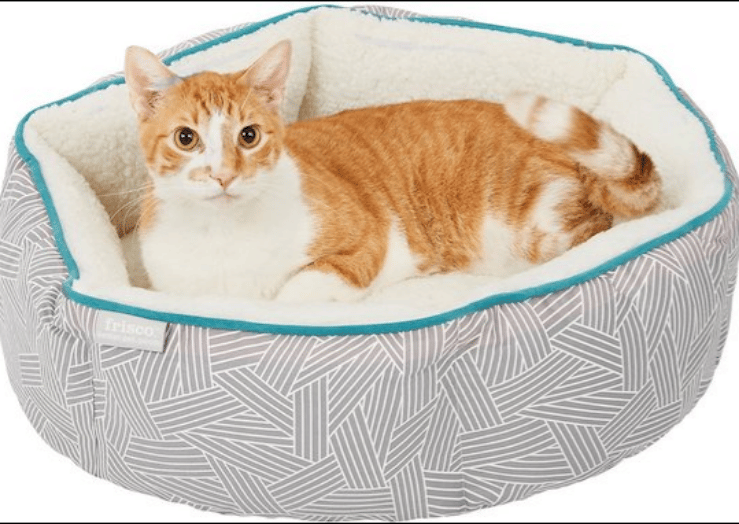
Where do Cats like to Sleep Best?
Cats are natural hunters, and it’s their instinct to stay in an enclosed space. This is one of the reasons cats like to sleep in boxes and shapes.
Your meow friend like enclosed cat beds, and while they like both beds and caves, cats prefer caves to beds when both are available for them to sleep.
Cats naturally get attracted to cat caves because they feel it’s a hideout, cozy, and warm and they can sleep safely therein.
Differences Between Cat Beds and Cat Caves
Materials
Cat beds are usually made from synthetic materials such as sherpa or fleece. Cotton, wool, foam, and wood can also be used to make it soft, fluffy, and strong for use.
However, cat caves are more eco-friendly because synthetic materials are not used, and no harsh chemical coating.
Cat caves are made with wet felting wool, washable by hand, vacuum cleaner, and washing machine.
Cats are attracted to wool and materials made with wool, possibly because of the smell of the natural oil (lanolin) in it.
Cats like the smell of wool because it’s an animal by-product and they feel they’re in their natural habitat, hence, they prefer caves that are made with more wool than beds.
Design
Cat beds can come in round, square, or other shapes and are filled with cushion materials to provide the needed comfort for your cats.
Cat caves come in modern designs and style. Caves are usually in the design of household items that cats like to interact with.
Caves are designed to be self-warming with the shapes they’re made into, and the heat control nature of the merino wool.
Cat beds are mass-produced and the use of toxic materials is common while cat caves are crafted using the wet felting techniques.
Security
Cats have a high sense of security, and that’s why they find a small and enclosed spot to sleep, and curl up to protect their body against predators and any form of threat.
Cat caves, therefore, give our furry friends that sense of safety while they take a nap or deep sleep.
They are not only protected from attacks, but cats can also mimic their hunting behavior from the caves, and take a position for defense and attacks in their caves.
Cats also find their caves the best place to retreat to and de-stress from other pets and children at home.
They find their peace in caves better than in beds.
Comfort
Both cat beds and cat caves provide comfort and warmth for cats but caves are better for cats.
Cats can get picky about their beds and refuse to use them but are attracted to caves because it helps them to withdraw from people and stay alone.
Caves are better for cats because they can control the temperature to suit your cat in both winter and summer seasons.
Cats tolerate warm temperature than cold temperature, therefore caves provide that warmth and cozy feeling than beds.
In summer, the wool can expand to release heat and allow cool air in, and in winter, the wool can trap warmth from the cat’s body to keep the caves warm.
Cost
Cat beds are mass-produced and cheaper to cat caves. You can get cat beds with nice features for $10 to $40.
Cat caves are made with 100% natural and quality materials such as merino wool, hand crafted, hence it’s more expensive, and can cost between $20 to $70.
